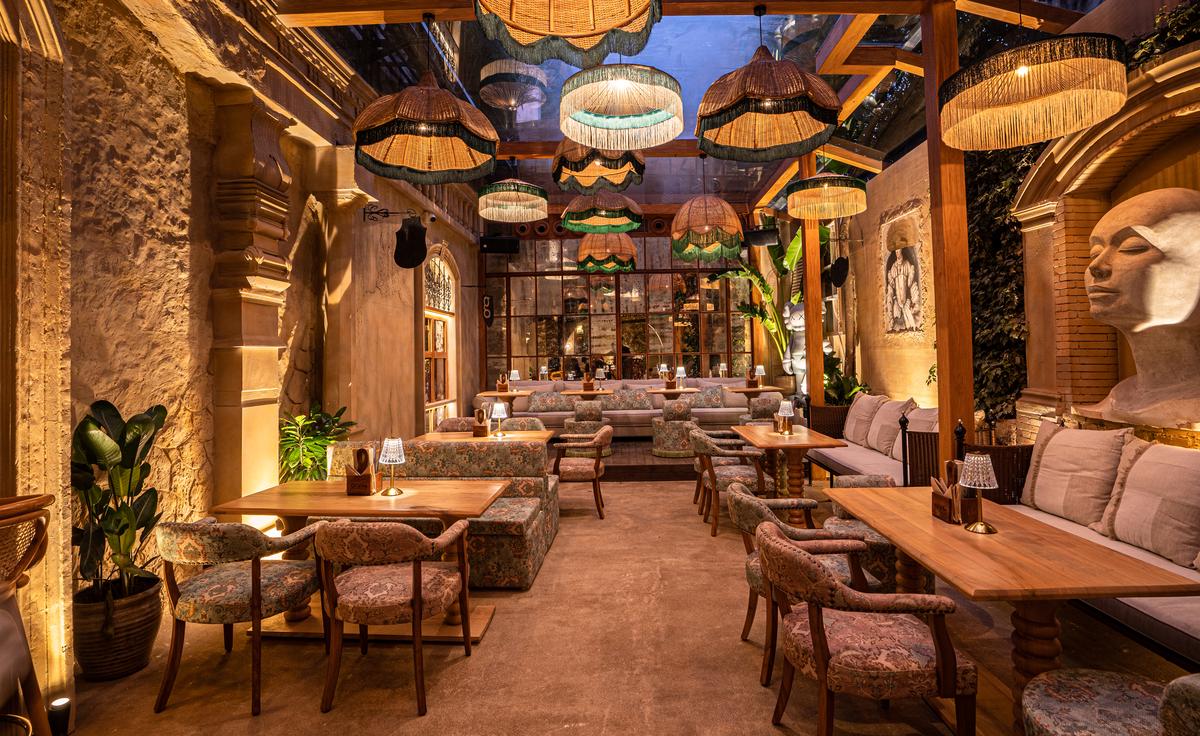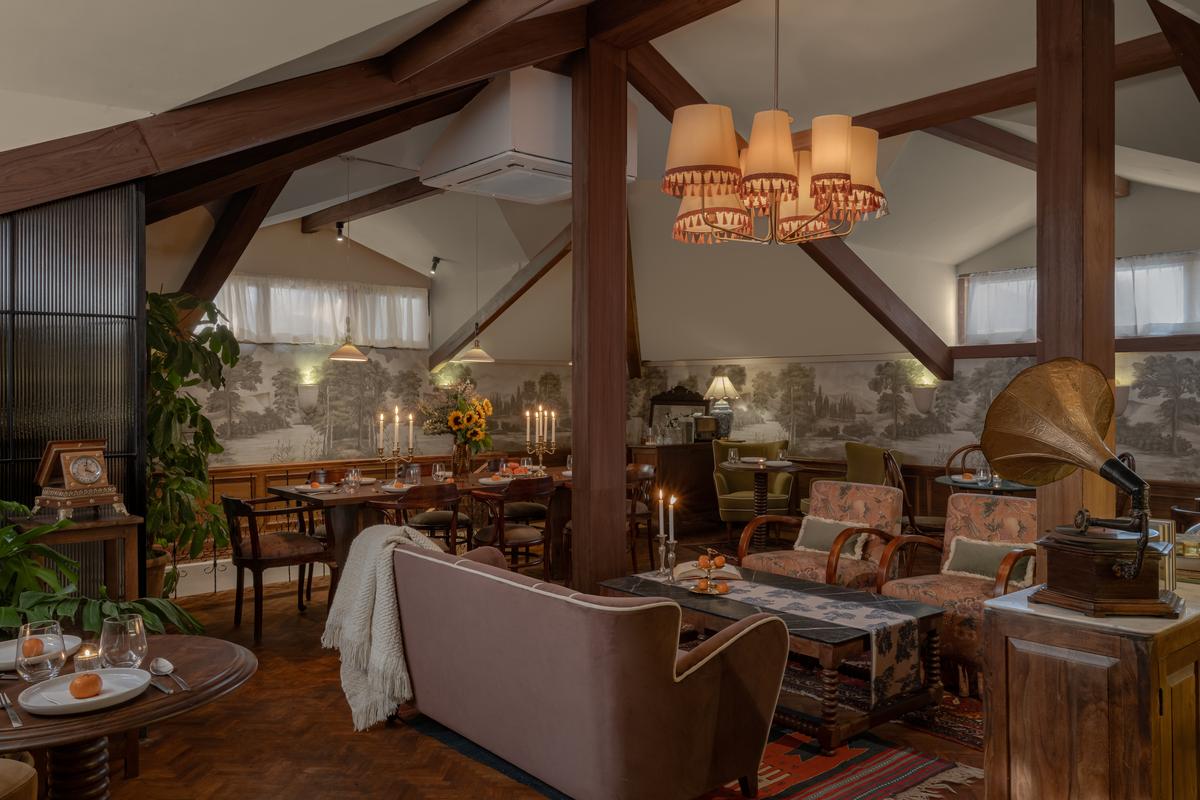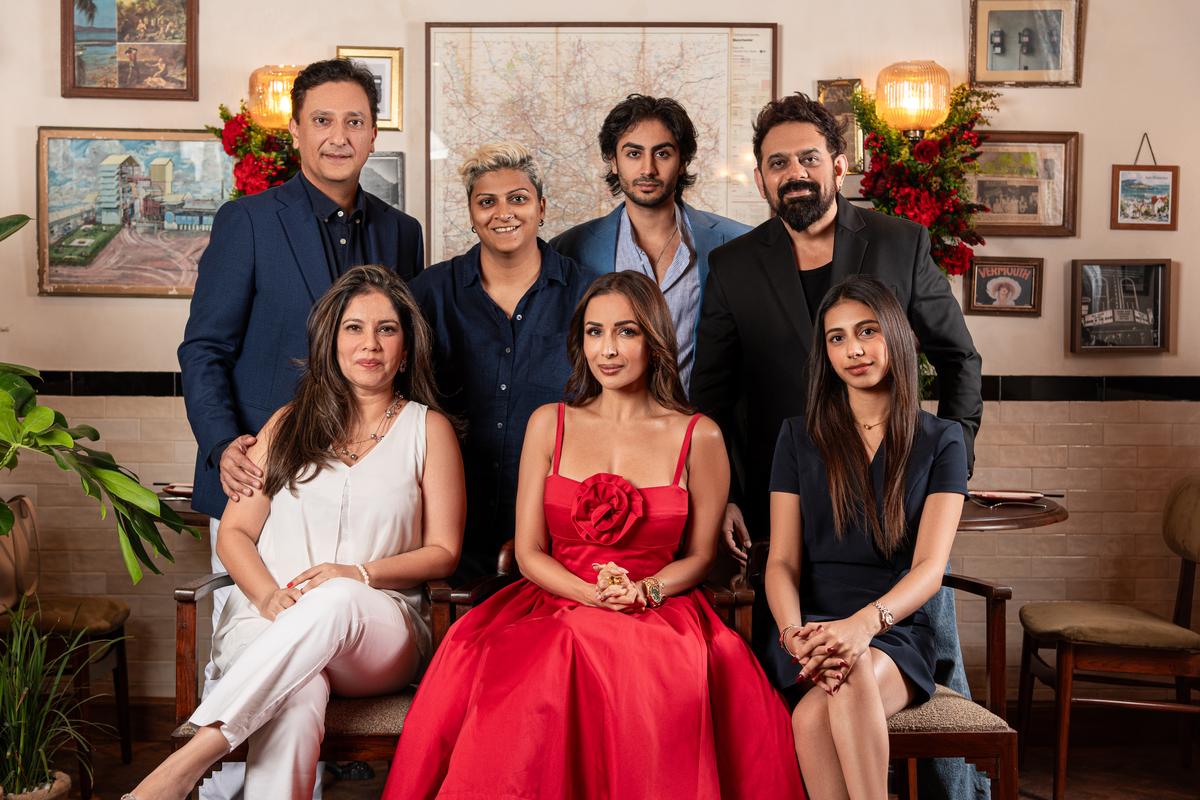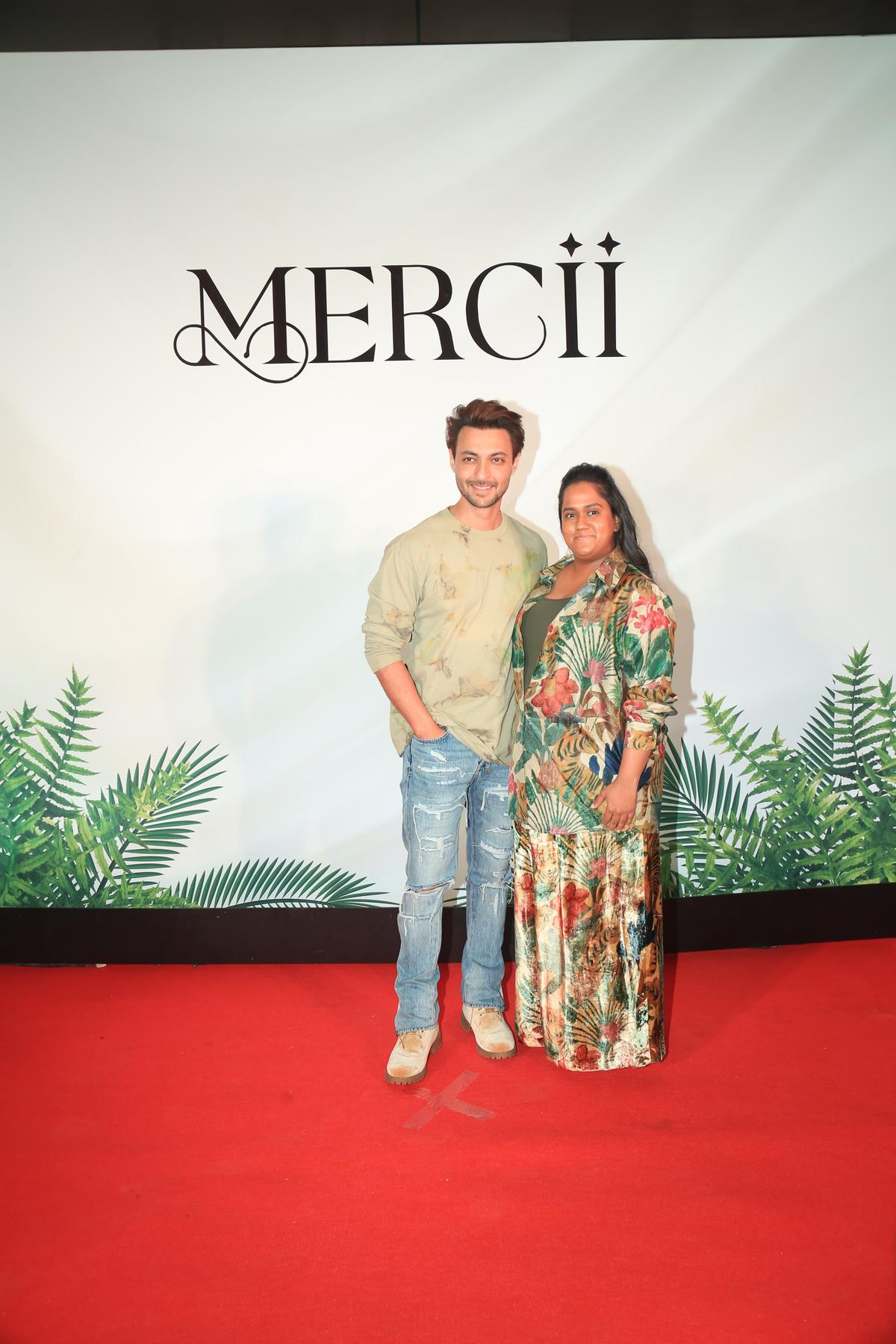There is something about Mumbai and its obsession with celebrity culture — whether it is spotting a Bollywood star on a coffee run or queuing up for a table at a restaurant they own. Over the years, the city has seen its fair share of celebrity-backed eateries — some thriving, some fading out after the initial hype.
Before Instagram and paparazzi culture made every celebrity meal an event, owning a restaurant was more about prestige than publicity. In the early 2000s, a handful of stars ventured into hospitality, some out of passion, others as a financial side hustle.

Inside Neuma
| Photo Credit:
Special Arrangement
Take Sachin Tendulkar’s Tendulkar’s, which opened in 2002 in Colaba — it seemed like a no-brainer at the time, with a menu featuring his favourite dishes, but despite a strong run, it eventually shut down in 2007. Actor Suniel Shetty’s H2O in Khar, a lounge bar that was once a hotspot, also did not survive beyond Mumbai’s nightlife boom. It operated from April 2001 until it was sealed in 2004.

One8 Commune in Juhu
| Photo Credit:
Manan Khandelwal
“At the time, celebrity restaurants were a novelty more than a necessity. Sure, they attracted crowds early on, but maintaining consistency, quality, and operations was a different ballgame altogether,” says Suved Lohia, hospitality consultant and entrepreneur, who launched cricketer Virat Kohli’s One8 Commune (set up in Kishore Kumar’s former Juhu bungalow, no less) in 2022 and the Karan Johar-backed Neuma, which also launched in 2022.
On a plate
By the 2010s, things started to shift. Celebrities were no longer just lending their name to restaurants — they were getting involved (or at least partnering with experts who knew what they were doing).
Bastian, originally launched by restaurateur Ranjit Bindra in 2016, was taken over by actress Shilpa Shetty-Kundra in 2017. She transformed it into one of Mumbai’s most exclusive seafood and brunch destinations, making it a paparazzi favourite in Bandra.
But the truth is, running a restaurant in Mumbai is no joke. Even if you are a celebrity, it is expensive, high-risk, and demands a constant buzz.

Inside Scarlett House
| Photo Credit:
Special Arrangement
“Celebrities dabbling in restaurants isn’t new, but their level of involvement varies widely,” says Roshini Sharma, former marketing head, Bastian Hospitality. “Some, like Virat Kohli with One8 Commune, are silent investors, leveraging their name but staying behind the scenes. Others, like Shilpa Shetty-Kundra with Bastian, are more hands-on, actively promoting their ventures and drawing in fans.”

The team behind Scarlett House
| Photo Credit:
Special Arrangement
The more involved a celebrity is, the bigger the impact on the restaurant’s visibility. Even in a dormant role, their circle of influence helps — but an engaged celebrity means social media buzz, fan-driven footfall, and a PR boost that significantly cuts down marketing costs.
Sealing the deal
According to Suved, most celebrity restaurants go through three key phases: the handshake — the celebrity and the restaurateur vet each other. Celebrities will not attach their name to just anything — they need to ensure their brand stays intact, while the restaurateur looks for a partner who brings more than just PR value. The awareness push — once the restaurant opens, the celebrity effect creates instant buzz. Fans visit, the media covers it, and social media hypes it up, making it the hottest new place in town. The reality check — once the excitement dies down, the restaurant has to stand on its own merit. If the food, service, and experience are not up to scratch, no amount of star power will keep it afloat.
More than a name
Arpita Khan, Salman Khan’s sister, recently ventured into hospitality with Mercii in Santacruz, a collaboration with Ketul and Gaurav Parikh, and Anuj and Vicky Chugh. But the idea was not to ride on the Khan name.
“With Mercii, the focus is on the experience, the food, and the atmosphere we’ve worked so hard to create. I’ve been very intentional about making it more than just a ‘celebrity restaurant.’ It’s not about relying on my name but about crafting something that feels personal, authentic, and inclusive,” says Arpita.

Arpita Khan with husband, Aayush
| Photo Credit:
Special Arrangement
There is a unique pressure that comes with being a celebrity attached to a restaurant, says Malaika Arora, who launched Scarlett House Bombay in Bandra with her son Arhaan and restaurateur Dhaval Udeshi (co-founder of Gigi and Lyla).
“People expect perfection in every detail, from the food to the ambience, and that can feel overwhelming,” says Malaika. “For me, the focus has always been on authenticity — creating a space that feels true to my values and vision. I knew there would be judgements, but success isn’t black and white — it’s about crafting an experience that resonates with people.”
For Dhaval, working with a celebrity has not changed how he runs a restaurant. “Gigi is incredibly successful, and it didn’t have a celebrity name attached to it. A restaurant’s success depends on how it’s run. That said, Malaika’s involvement has brought a unique touch, like the hydration bar and retail programme at Scarlett House. It’s more than just a celebrity association,” he says.
Privacy and paparazzi
Paparazzi-heavy venues often need to find ways to balance discretion with inclusivity.
“For politicians, A-listers, and athletes, a dinner reservation is a carefully managed operation,” says Roshini. In most cases, bookings are handled personally by the owners or a small, trusted team to avoid security risks and unnecessary attention.
“If possible, VIP guests are seated in more secluded areas to prevent disruptions. Of course, their security entourage is usually a giveaway, but most high-end restaurants do what they can to maintain discretion,” she adds.
For Bollywood’s biggest stars, some venues even use staff entrances or secret backdoors to allow them to slip in and out unnoticed.
The aspirational effect
Luxury hospitality is not for everyone, and that is intentional.
“When a brand positions itself in the luxury category, it’s already making a choice. It’s not about exclusion — it’s about curating an experience for those who truly value it,” says Roshini.
This is where celebrity partnerships come in — they reinforce exclusivity and desirability. Pricing in luxury isn’t just about cost — it is a filtration tool. While some customers may dismiss a place due to affordability, the gap is closing. Indian consumers are better travelled and brand-conscious, and even if they are initially hesitant, the aspirational pull of hotspots like Bastian eventually draws them in — if only out of curiosity.
The verdict
It is pretty clear that a celebrity does not necessarily make a restaurant better or more competitive, but it does offer a layer of cushioning — instant visibility, media attention, and a certain aspirational appeal. We live in a generation of flux, where validation and attention spans are shrinking. Everything is about Instagram, YouTube, and short-form content—people scroll, watch Reels, and pick restaurants based on where celebrities are seen dining.
Says Suved, “Even if a place was not originally on their radar, seeing a star visit could bump it up a few spots on their list. People follow where Bollywood goes — they want to know which places their favourite stars frequent, how often, and what they’re eating. That kind of hype creates instant curiosity, which in turn drives footfall.”
Published – February 20, 2025 03:08 pm IST
#buzz #celebrityowned #restaurants #Mumbai #real #staying #power
